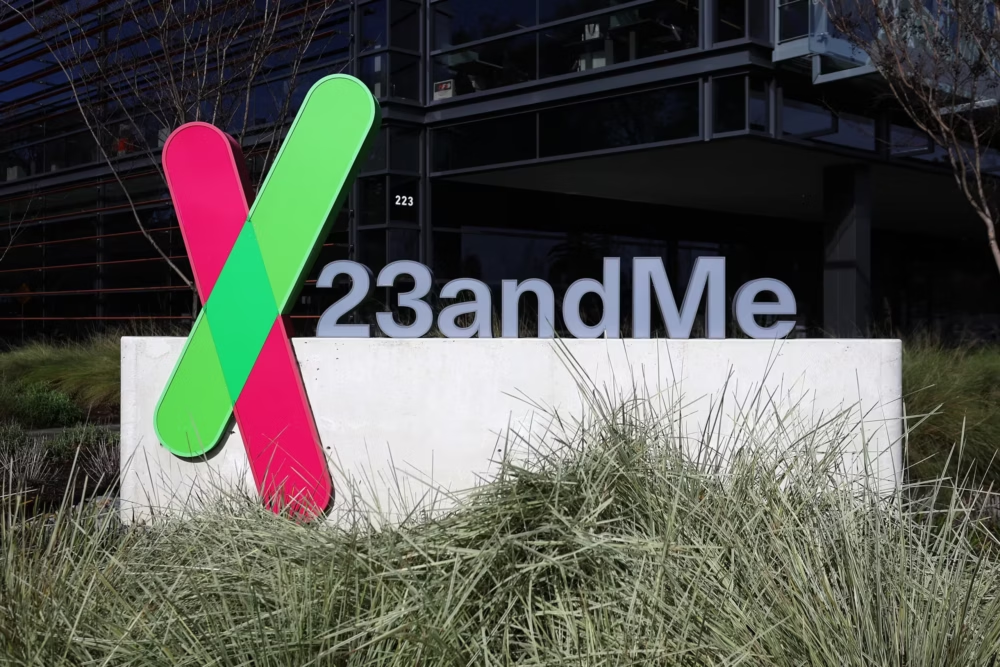The approximately 15 million participants that willingly offered their DNA biometrics to genetic analysis company 23 and Me have nothing to worry about because pharmaceutical companies apparently never lie. Or something.
American biotechnology giant Regeneron Pharmaceuticals Inc (NASDAQ: REGN) announced the purchase of 23 and Me on Monday for USD$256 million in cash to buy the defunct consumer-genomics company, including its biobank of approximately 15 million DNA samples and data.
The point worth reiterating here is that a drugmaker now holds the genetic information of millions and is actively mining it to develop new therapies, according to the Washington Post—a situation that could become a data privacy nightmare.
Consumers willingly gave their samples so 23andMe could decode their DNA. This process offered a glimpse into genetic makeup and family history. That kind of biometric data is both wildly valuable and widely sought-after. When 23andMe collapsed financially, its genetic data quickly attracted attention as a lucrative asset.
Notwithstanding, the situation hasn’t exactly sat well with data privacy experts.
Experts warned that selling the data would expose customers’ genetic information. Further, it could compromise details about their close and distant relatives. In essence, the entire genetic trove risked falling into the hands of the highest bidder.
Company cofounder and president George Yancopoulos pointed out Regeneron’s extensive experience handling large-scale data.
He noted that the drugmaker has partnered with global collaborators to link deidentified DNA from nearly three million participants to electronic health records. Further, he claimed this work has safely and securely supported future medical breakthroughs.
Read more: Scientists develop breath-related diagnostic tool for early detection for silicosis
Read more: Korean consortium propels lung cancer drug development with AI, supercomputers
Regeneron has a history of choosing profits over people
In its press release, Regeneron stated it intends to follow 23andMe’s existing privacy practices.
Anya Prince, a law professor and privacy scholar from the University of Iowa, emphasized that while genetic research holds significant promise, many individuals may not fully comprehend how their data is used.
She pointed out that some people might be uncomfortable with their genetic information being used by pharmaceutical companies that profit from it, especially if the resulting medications are expensive. Prince also said that the lack of robust protections to ensure that data is used in ways that align with individuals’ values.
“We just don’t have the protections that bolster the good uses of data and protect against the harmful uses,” said Prince.
Despite its reputation as an innovator in the field of biotechnology, Regeneron Pharmaceuticals has received growing criticism.
Some of its successes and contributions include effective therapies for diseases like COVID-19, asthma, and macular degeneration. But it also its business practices. These include drug pricing.
Critics argue that Regeneron charges exorbitant prices for life-changing medications like eye disease drug, EYLEA, which generated billions in revenue. Also, many healthcare advocates view these prices as a barrier to access, especially for lower-income or underinsured patients.
Read more: Wearable tech provides incomplete data for heart health
Read more: Focus on diet for lung cancer prevention isn’t strong enough, research shows
Patent strategy leads to privileged access to lifesaving medicine
Furthermore, Regeneron has aggressively defended its patents, which allows the company to maintain market dominance and limit competition. This legal strategy delays the arrival of cheaper, generic alternatives that could benefit patients and public healthcare systems alike.
The company has also come under scrutiny for its significant lobbying expenditures. Regeneron spends millions annually to influence U.S. healthcare policy—raising questions about whether corporate interests are overriding public health concerns.
Another point of contention is executive compensation. Regeneron’s top executives, including CEO Leonard Schleifer, have received pay packages that some watchdog groups deem excessive. These compensation levels are particularly controversial in light of the financial burden many patients face when trying to afford Regeneron’s medications.
Conversely, the company argues that such profits and policies are necessary to fund further research and innovation. Still, data privacy experts have begun raising alarms—particularly in light of Regeneron’s increasing access to vast datasets, including genetic information. Critics warn that, without stronger oversight, the combination of profit motives and sensitive data could lead to troubling ethical dilemmas.
.














